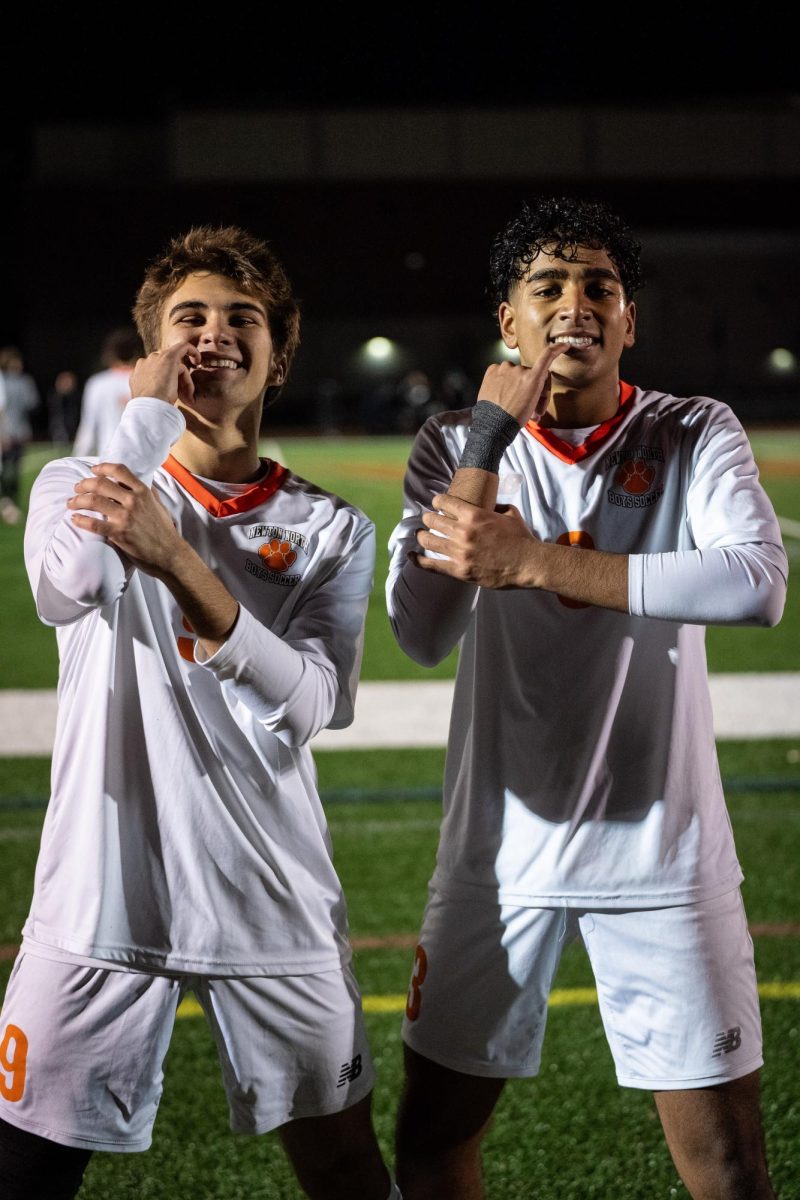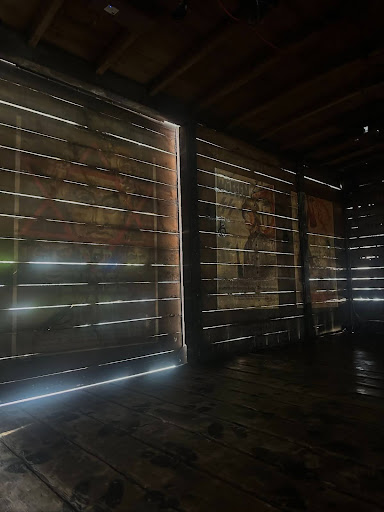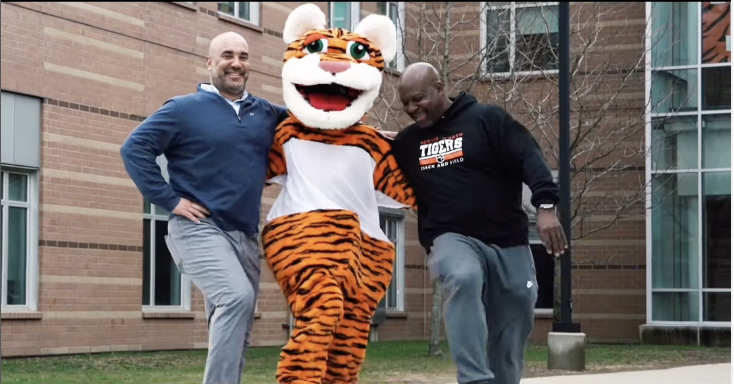by Emily Moss
For many students approaching the end of their high school careers, the structured assignments and rigid curriculum of a normal class can feel limiting and repetitive.
Second-semester seniors who wish for a different kind of educational experience have the opportunity to participate in CAPStone, a program in which students conduct independent research projects and internships as an alternative to attending school for the usual amount of time each day.
The program helps students to prepare for college and also gives them a chance to “be challenged, connect with the community, and move their learning outside of school,” according to chief innovation officer Stephen Chinosi, a CAPStone Committee Chair.
Students participating in the program enroll in advanced research classes during term three and are “released” during term four to “actually build, make, do, research, and intern,” said Chinosi.
He added that CAPStone allows students to exhibit the skills they have learned in school.
Several students involved discuss their experiences with the program.
Jake Close
For his project, Jake Close built environmentally-friendly, pedal-powered speakers by replicating the work of Paul Freedman ’92.
Freedman’s company, “Rock the Bike,” uses special stationary bicycles to power concert stages and sound-systems, according to the company’s website.
Close said, “I try to find some type of repetitive motion and engineer a way to convert a potential mechanical energy into electricity.” He added that as of now, he has “successfully played music out of a pair of speakers simply by pedaling a bike.”
Close began his project by conducting student surveys on transportation methods to and from school.
Earlier this month, the Newton Conservators, an organization that promotes the preservation of open space, provided Close with a grant that has been “critical in allowing me to purchase the necessary components,” according to Close.
“While most people get their energy from the grid, which is a mysterious, distant source of electricity,” said Close, “I have always been intrigued in small-scale electrical production.”
Over the next few weeks, Close said he plans to create a storage box and finalize his design to contain all of the necessary parts.
Henry Edson
Henry Edson is interning at a law firm in order to explore a possible career opportunity for the future.
“I’ve always had an interest in politics, government, economics, and law, and interning in a law firm seemed the most practical for this experience,” said Edson.
He added that conducting a CAPStone project has given him an “extra push for independence” between high school and college and a chance to experience a “more realistic opportunity and lifestyle.”
The goal of Edson’s project is to “really learn the intricacies of our judicial system by going and learning the specifics of what the lawyers can teach me,” he added.
Eliana Gevelber
Eliana Gevelber, who is participating in the research portion of CAPStone, said, “I’m working on how to reinvent science education to make it more effective and engaging.”
Gevelber added that she feels that science labs and interactive activities normally conducted in schools often smother a student’s sense of discovery because students know in advance what the results will be, and that students are often encouraged to memorize facts rather than to develop a more fundamental understanding of the material they learn.
For this reason, Gevelber is observing classes and helping to teach science at McKinley Middle School, a Boston Public School that primarily serves students with special needs.
“I’m focusing in on how administrators can train teachers to effectively teach science so that students have the tools to approach any scientific issue of the future,” said Gevelber. “In other words, so that they are scientifically literate.”
Gevelber believes that effective science teachers must “tap into the knowledge of their students, including the students’ learning styles, interests, and strengths” and “give students deep understanding of topics, not only superficial knowledge.”
She added, “thinking is more important than memorization.”
In addition to her experience in the classroom, Gevelber said she is reading “all the books and articles pertaining to my subject that I can find” and is interviewing science educators.
Following her research, Gevelber will create a guide for science department heads and administrators describing effective methods of training science teachers.
Jonah Shechtman
Jonah Shechtman says he is conducting an investigation of why people have the desire to tell stories through song and how that desire has evolved over time.
As part of his project, Shechtman hopes to compare modern music to songs from the Underground Railroad and versions of The Odyssey that have been set to music.
He added that he will produce and record a few of his own songs as an end result of his project.
“I’ve been playing music my whole life, and I’ve been writing songs for all of high school,” said Shechtman.
Dan Smith
For his CAPStone project, Dan Smith is interning at a non-profit organization called “Tenacity,” which provides free literacy tutoring and tennis lessons to inner-city kids.
During the first two months of his internship, Smith said that he helped “run classes and activities with the students,” and that for the second half, he has been working in an office and helping to coordinate Tenacity’s summer program.
“I had always loved working with children,” said Smith, adding that he “wanted some tangible experience working in the field.”
Smith said that his internship has in part given him a “more cynical” perspective because “much of the success we see and are proud of in terms of grades or college acceptances are not at all because we are ‘smarter people’ but because we are so well supported.”
At the same time, Smith said he has adopted a more optimistic attitude after realizing “that the schools and programs in a place like Dorchester are pretty well funded and that the students there have many of the same opportunities that we have.”
Smith will give a short presentation at the end of his internship and has also been keeping a weekly blog on his experience.










































